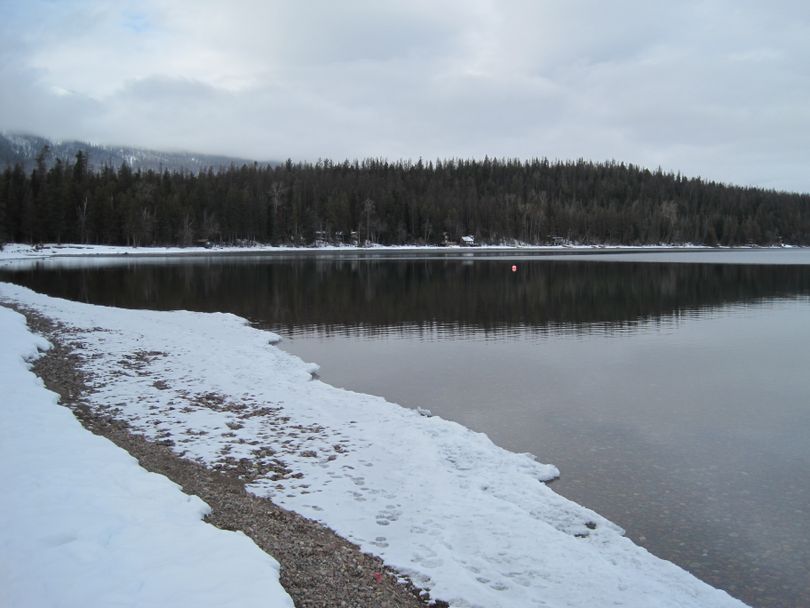Winter in Glacier National Park

Special to Pinch
By Cheryl-Anne Millsap
Feb. 21, 2010
We drove into the west entrance of Glacier National Park late in the clear February morning and our tires crunched into the frozen crust of last week’s snowfall. The cold, sweet, air bit at our faces as we opened the back of the car and unloaded our gear.
Strapping snowshoes on our feet, we put on gloves and hats and slipping our hands into the straps of our poles, we set out. Our lunch of hearty sandwiches on homemade bread, each as thick as a doorstop, was stowed and ready for a picnic along the way.
The wide flat trail we followed was much more than a path meant for meandering. In the summer, which comes late to the northwest, the 60-mile Going to the Sun road in Glacier National Park is a busy throughway, carrying hundreds of thousands of tourists from one side of the 1.2 million acre park to the other. But in winter, which comes early, the road closes and becomes a place to play. The only human sounds are the scraping of snowshoes or the gliding sound of cross-country skis. Occasionally a laugh slices into the solitude.
Glacier is magnificent in summer, grand in the fall, but the
100-year-old park comes into its own in the deepest part of winter.
Heavy snow settles onto the bowed branches of evergreen trees and
creates soft white sculptures, like cotton candy towers and castles,
and drifts over fallen logs in the forest. Animal tracks; moose, mink,
wolf and rabbit criss-cross the trails. The razored edges of the
mountains jut above the horizon, piercing the wreath of clouds that
hang over the valley and touch their own reflection in the mirrored
surface of Lake MCDonald. It is impossible to be here - to be in such a
wild and majestic place - and not be moved by the power of nature.
We walked on, following the curve, arms swinging, poles stabbing
into the snow. The wintery sun was by now hidden somewhere high
overhead. A solitary peak, framed by the trees on either side of the
road, loomed in the distance.
When it was time to eat, we moved off the trail and planted our
poles in the snow to hold our caps and gloves. Out of the daypack came
the sandwiches, the cold salads and fruit. We ate quietly, speaking now
and then, turning to watch others moving along the snowy road, or to
stare deeper into the forest. Our appetites were sharpened by the cold
air and exercise. And the water tasted so good.
To be in such a wild and wonderful place, to feel the sting of the
frozen air with each breath, savoring every bite of a simple meal, was
a splendid feast. And, as we put back on our hats and gloves, picked up
the poles and started back the way we had come, we were truly well fed.
Body and soul.
Cheryl-Anne Millsap is a freelance columnist for The Spokesman-Review.
She is the author of “Home Planet: A Life in Four Seasons,” and can be
reached at catmillsap@gmail.com